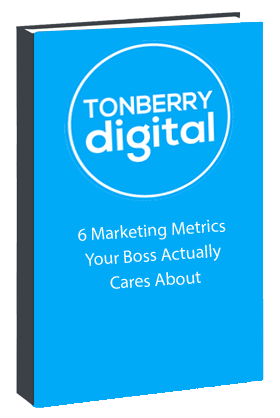Understanding your inbound marketing analytics is one of the most fundamental elements for the success of your business in an online world, and the best way to leverage your online marketing efforts to create content and campaigns that produce results in the future.

To grow your business and cultivate relationships with the people that matter most, you need to know what your audience wants, what they like and how else you can help make their lives easier, better, more productive. You also need to know how your audience likes to consume the information you provide them – that is, on which channel and in which format.
Smart business owners know that data and analytics provide the key to building a successful organisation. It is data that provides the guiding light to help you know your customers, know our audience and understand how you can inspire, connect with and build communities.
Many people want to know how you can take something like Inbound Marketing and explain the benefits of it in ways that decision makers will understand? The power of data and analytics – metrics that enable business to aggregate marketing’s impact on company revenue, as well as providing predictive forecasts, is the type language that business can understand. Data, and the measurement of all your Inbound Marketing activities, empowers you to be able to make data driven decisions, measure your return on investment (ROI) and establish the metrics for your success.
When talking data and measurement in an online world, it’s important to know the difference between web analytics and inbound marketing analytics. Web analytics can provide you with an abundance of insight and data into the technical performance of your website, like traffic, bounce rate and unique visitors. Inbound marketing analytics measure business metrics like traffic, leads, sales and conversion rates and how things like content or events are influencing visitors to your site, or your Social Media followers to behave.
While inbound marketing analytics does include some website data, it also includes information from your other activities likes like email, Blogging and Social Media. These measures are business related and ‘people-centric,’ focusing on the prospect, lead or customer and how they interact with your marketing outreach. In short, inbound marketing analytics give you a better reading of the effectiveness of all your Inbound Marketing activities.
Marketing data, and the subsequent analysis of that data, enables you understand the individual performance of each element in your campaigns such as Social Media vs. Blogging vs. email marketing, to help you to determine your true ROI. This kind of analysis also helps you to see what’s working and what needs improvement in your Inbound Marketing mix.
Inbound Marketing Analytics – The Data Doesn’t Lie
Looking at the numbers gives you a much deeper understanding of what drives leads to your website. Inbound Marketing solutions provide you with 24/7 information about how your digital real estate performs on the airwaves. Let’s take a look at some of the specific benefits your marketing data and analytics can provide your business.
An Integrated Assessment of All Your Marketing Channels
Inbound marketing analytics give you a crystal ball like view of how your activities perform across every individual channel you publish content to (e.g. Social Media, Blogging, email marketing, SEO, etc). However, the real power of analytics comes into play when you can easily tie the effect of how your multiple channel strategies operate in relationship to each other.
As an example, say you sent an email to your contacts. Inbound marketing analytics can tell you how many people clicked through from your email to your website, as well as tracking how many of those people actually converted into leads for your business when they got there. In addition, you can compare the impact of that individual email send with other marketing initiatives. You are able to assess whether any given email generates more leads than individual Blog posts or your social presence.
An Overall Understanding of Your Entire Customer Lifecycle
One of the key differentiators between web analytics and inbound marketing analytics is that the latter uses the behaviour of the individual, as opposed to page performance, as the focal point for metrics. This gives you enormous scope to track how your individual prospects and leads are interacting with your various marketing initiatives and channels over time.
You can see how an individual lead first came to find your website, was it via search, Social Media or direct? Then you can dive deeper and figure out whether that lead’s behaviour is active and indicates that they have more than a passing interest in what you’re offering. Do they often click and convert on marketing offers you send via email? Do they read your Blog? Inbound marketing analytics can tell you all of this and more, providing you with extremely valuable lead intelligence that you can then use to nurture your leads.
The fact that inbound marketing analytics enables you to aggregate information about the performance of your activities AND the behaviour of your audience, gives you a powerful tool to intuit what you need to do. Understanding trends among your prospects and leads helps you to know what types of marketing activities are valuable at different stages in the sales cycle. Solutions like Hubspot have built in functionality the make sit possible to score and prioritise your leads so that you can identify which activities contribute to a marketing qualified lead for your business.
The Marriage of Sales and Marketing: The Closed-Loop
Perhaps the most beneficial aspect of inbound marketing analytics is its ability to integrate your marketing activities with those of your sales team. Whilst your Blog may be effective in generating leads, what you really want to know is whether those leads actually turn into customers. Closed-loop inbound marketing analytics makes this possible. The prerequisite for closed-loop marketing is that your inbound marketing analytics solution is integrated with your customer relationship management (CRM) platform (such as Salesforce or SugarCRM).
With this ‘closed-loop’ of data, you can determine whether your individual marketing initiatives are actually contributing to the bottom line. Meaning that this closed-loop approach will make it possible for you to see which content channels are your most critical for driving sales. This way, you will know if your Blog is your most effective channel for generating customers, or you might find that Social Media is really only powerful as an engagement mechanism, but it isn’t a source of sales for your business.
Act on Your Insights
All of the insights, information, and data you gather from your inbound marketing analytics is really only beneficial if you do something with it. The true value of analytics isn’t just to prove to leadership that all the marketing activities you’re doing are worth the time and money. The power of analytics is in their capacity to help you improve and optimise your marketing performance. The type of data you can glean from inbound marketing analytics is so granular that you know, on a channel-by-channel basis as well as in an overall, cross-channel context, what’s working for you and what isn’t.
Data and analytics provide with a pretty scientific method for assessing your performance. For those of you out there who aren’t comfortable with the idea of ‘data and analytics,’ fear not, there are many tools and solutions that make it easy for you to analyse your online activities. Hubspot is one of the most sophisticated solutions in the market for doing exactly the type of analysis you need. It’s a great tool for creating and distributing content, as well as understanding how that content performs and how your audience behaves in relation to your content.
Tonberry Digital are a Sydney based Inbound Marketing Agency. We live, eat sleep and breathe digital, particularly Inbound. If you have any questions that you need answered around digital marketing feel free to get in touch with one of our consultants for a free consultation.











